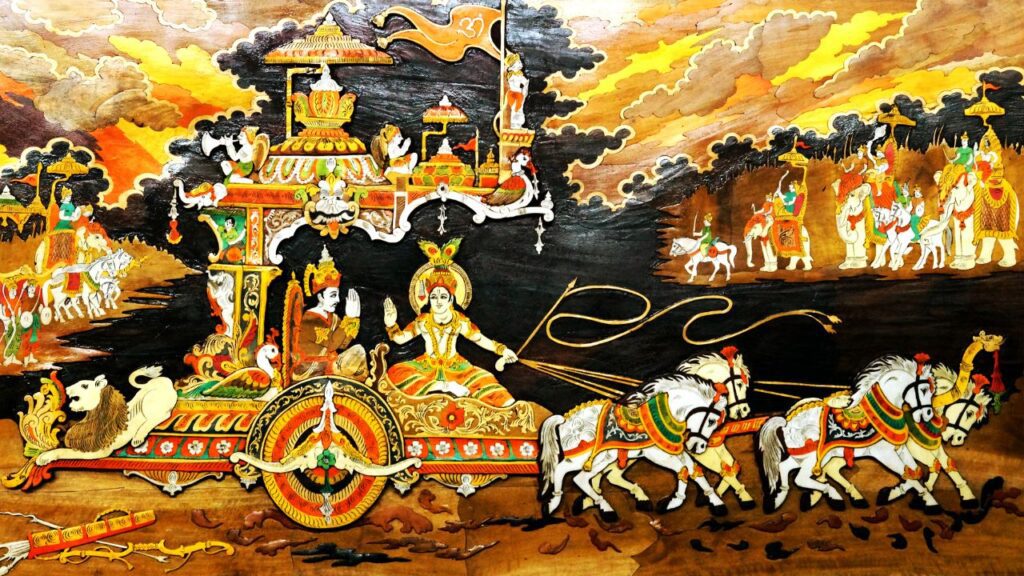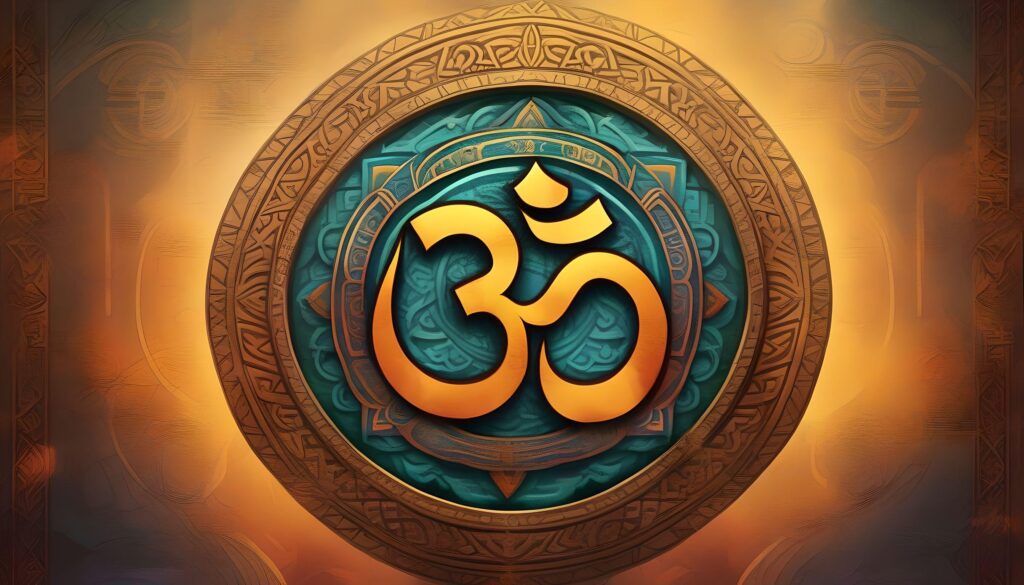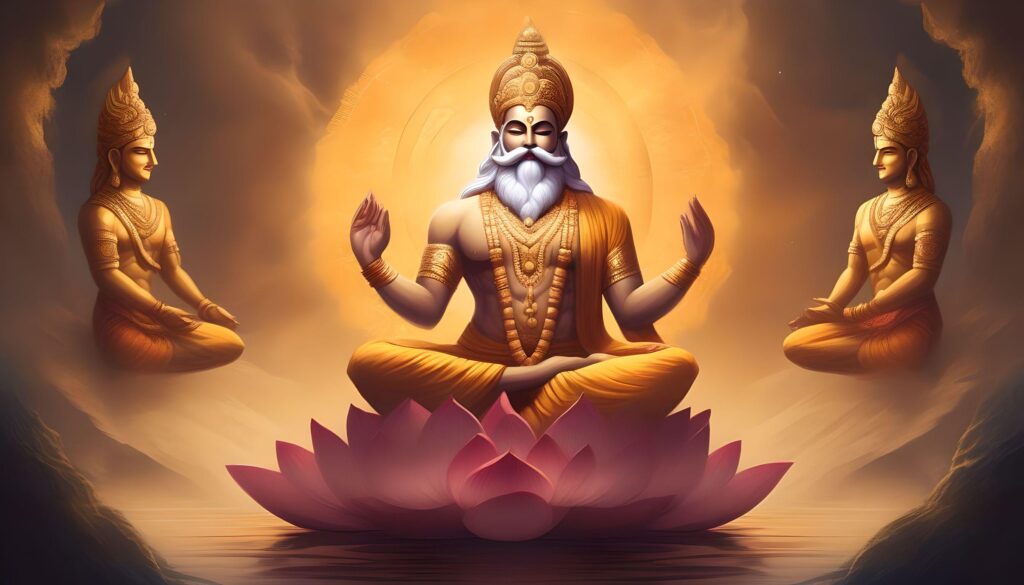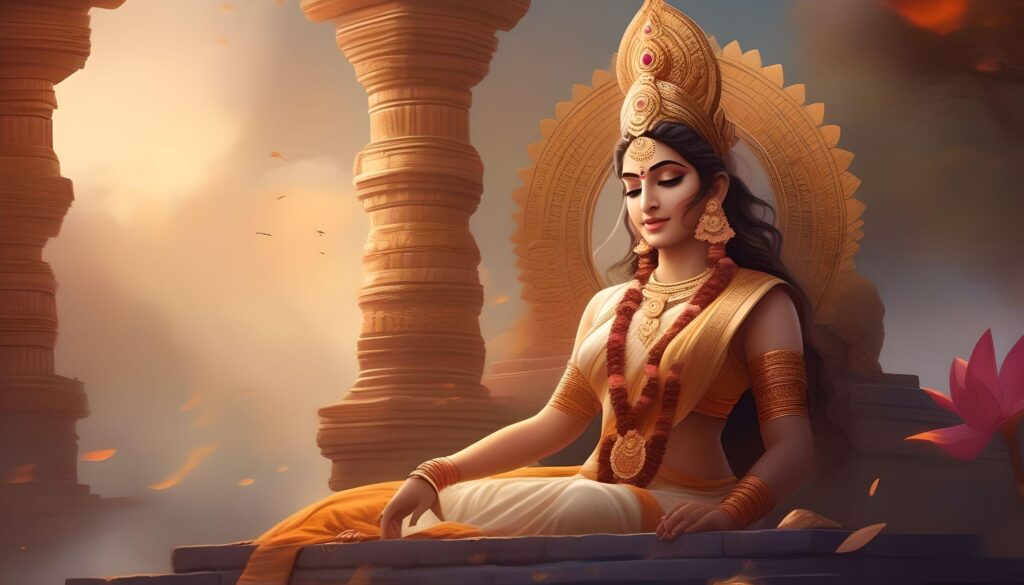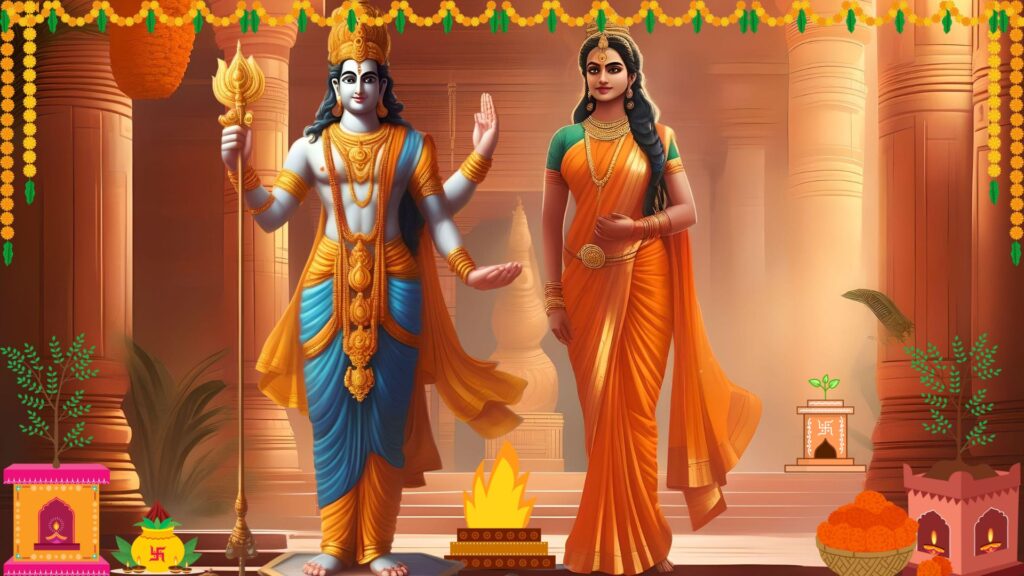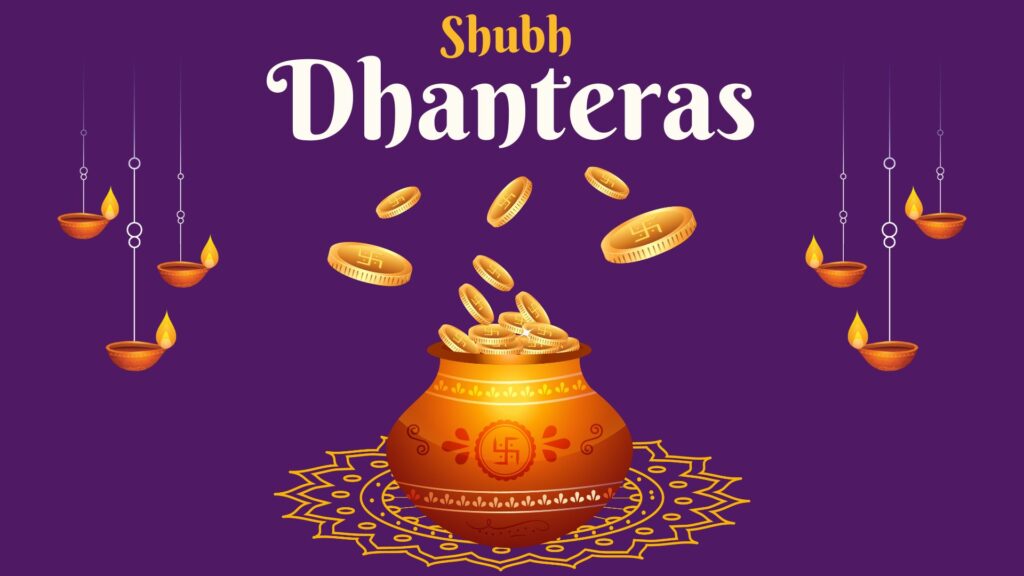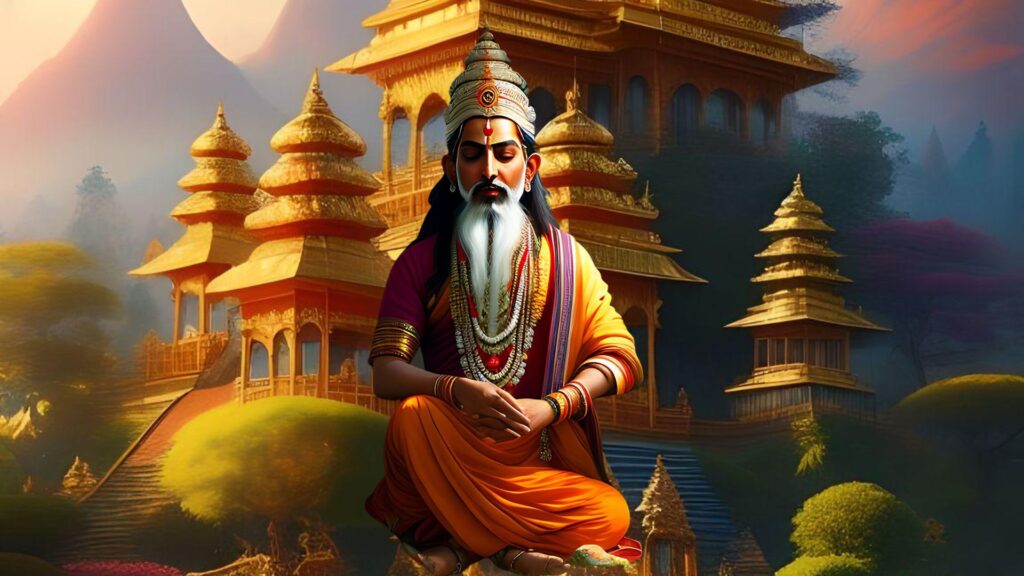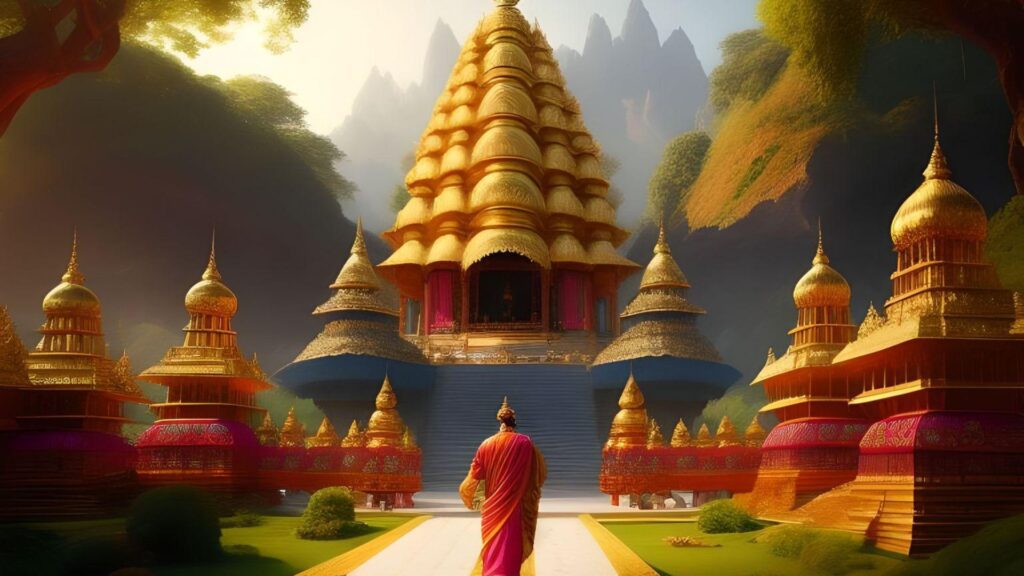Hindu Teachings : A Perspective on LGBTQ+ Rights
Introduction
In recent years, the subject of LGBTQ+ rights has emerged as a significant matter of public and religious discourse in India. Since 2013, when the Supreme Court criminalized same-sex relations, there has been an increase in anti-gay violence in the country. Nevertheless, the query persists: Is it possible for Hinduism and homosexuality to coexist? The objective of this article is to investigate the historical context that influences the perspectives within Hinduism and to delve into this debate.
Hinduism and Homosexuality: A Complex Relationship
Hinduism, one of the earliest religions in the world, has a multifaceted relationship with homosexuality. In comparison to other religious traditions, some contend that Hinduism’s theological foundations offer a more tolerant perspective on homosexuality. Some argue that Hindu society’s attitudes toward homosexuality have been influenced by historical context and socio-religious customs.
The Hindu Concept of Equality
The belief that every being is divine and reflects divine qualities is fundamental to Hindu teachings, irrespective of their exterior attributes. Hinduism acknowledges the spiritual equality of all individuals, regardless of their sexual orientation. This conviction is consistent with the humanitarian obligation to provide equitable treatment to all, including LGBTQ+ individuals.
Hindu Scriptures and Sexual Orientation
The Sruti, Hindu religious texts, emphasize the ultimate objective of life—moksha, or liberation from the cycle of birth and death—and eternal truths. Sexual orientation is not explicitly addressed in these texts. They underscore the fact that individuals are eternal spirits who have become incarnate and that their spiritual journey is not determined by external factors like gender and sexual orientation.
Hinduism posits that the attainment of moksha is achieved through the transcendence of material desires, altruistic service, and devotion. On the path to spiritual liberation, sexual desires, including those of LGBTQ+ individuals, are perceived as a component of the material world and are to be transcended.
The Influence of Smritis on Hindu Perspectives
Hinduism also derives wisdom from the Smritis, which provide a detailed account of socio-religious laws and customs that are influenced by time, place, and circumstance, in addition to the Sruti. The Smritis are subject to reinterpretation and change, which is indicative of the changing nature of Hinduism.
Although some Smritis express a moderate opposition to homosexuality, they do not advocate for broad-based, severe punishments. Professor Arvind Sharma, a Hindu academic, contends that Hinduism is a sex-positive religion that acknowledges the diverse purposes of human existence. He suggests that traditional Hindu attitudes toward homosexuality range from moderate amusement to indifference.
Historical and Colonial Influences
It is imperative to examine the historical and colonial influences that have influenced the views of Indian society in order to comprehend Hinduism’s stance on homosexuality.
British Colonialism and Section 377
The sexual norms and laws of India were significantly influenced by British colonialism. In 1860, the British colonial authorities implemented Section 377 of the Indian Penal Code, which prohibits “carnal intercourse against the order of nature.” This law, which was predicated on Victorian social norms, was implemented in numerous colonies, including India.
Section 377 continued to be enforced even after India achieved independence. The Indian Supreme Court did not decriminalize consensual same-sex relations until 2018, thereby overturning the colonial-era law.
Varying Perspectives within Hindu Society
The influence of colonialism on Hindu society’s perspectives on homosexuality is multifaceted. Although some contend that Hinduism’s theological foundations are still tolerant, others contend that the marginalization of LGBTQ+ individuals is a result of societal norms and the apprehension of deviating from traditional values.
Harish Iyer, a prominent LGBTQ+ activist, underscores the discrimination that homosexual citizens in India endure. He argues that family rejection and violence against LGBTQ+ individuals have persisted, particularly since the Supreme Court’s ruling in 2013.
Interpretations within Hinduism: Varying Perspectives
Diverse perspectives on homosexuality have emerged within Hindu society as a result of the various interpretations of Hindu scriptures and teachings. The perspectives vary from advocating for LGBTQ+ rights to opposing same-sex relationships.
Hindu Theologians and Historians
The compatibility of Hinduism with homosexuality is a topic of frequent debate among theologians and historians. Some contend that Hinduism is more accepting of diverse sexual orientations than other religions due to its emphasis on spiritual equality and ambiguity.
Manu Bhagavan, a history professor, elucidates that pre-modern Hindu society was more permissive of sexual expression, as evidenced by temple engravings and religious art. He implies that the practice of designating sexual orientations, as it is currently practiced in modern society, was not as prevalent in the past.
Baba Ramdev: A Conservative Perspective
Baba Ramdev, a prominent yoga guru with close connections to conservative Hinduism, maintains a more conservative perspective on homosexuality. He is of the opinion that homosexuality is not a natural occurrence and is in direct opposition to Hindu scripture, particularly the Vedas.
Ramdev acknowledges that Hinduism does not condone discrimination; however, he maintains that same-sex relationships are in direct opposition to the teachings of Hindu scripture. A segment of Hindu society that opposes homosexuality on religious grounds is represented by Ramdev’s perspective.
Devdutt Pattanaik: Mythology and Gay Rights
Devdutt Pattanaik, an Indian author and mythologist, adopts an alternative perspective. He contends that pre-modern Hindu society did not offer a paradise for homosexuals; however, he suggests that Hindu texts applied lenient penalties for same-sex relations in comparison to heterosexual transgressions.
Pattanaik asserts that Hindu temples depict gods with multiple spouses, emphasizing the paradox of Hinduism’s perspectives on relationships. He challenges the detractors of homosexuality, arguing that their opposition cannot be solely based on Hinduism’s teachings.
Diverse Opinions within Hindu Organizations
The diversity of opinions within Hindu society is exemplified by Hindu organizations such as the Rashtriya Swayamsevak Sangh (RSS). Pradeep Jain, an RSS coordinator, recognizes the diverse perspectives on homosexuality that the organization’s members hold.
Jain elucidates that some advocates are against legislation that criminalizes same-sex relationships, while others adhere to conventional beliefs. Jain, a leader within the organization, elects to maintain his silence regarding the matter, acknowledging the diverse expectations and convictions of the members.
The Personal Journey of Sadhvi Bhagwati
Sadhvi Bhagwati, a prominent spiritual advocate and American convert to Hinduism, contemplates her personal struggle to reconcile her progressive perspective on homosexuality with her faith. She challenges the concept of selfish desire by drawing comparisons between elderly couples with reduced fertility who engage in sexual activity and same-sex relationships.
Bhagwati recognizes the difficulty of reconciling personal beliefs with religious teachings, acknowledging the issue’s complexity. Her voyage is a representation of the internal conflicts that individuals encounter when they attempt to reconcile their faith with their support for LGBTQ+ rights.
Moving Forward: Evolving Hindu Perspectives on LGBTQ+ Rights
As Hinduism continues to develop, it is imperative that Hindu leaders, both religious and secular, investigate a perspective that is distinctively Hindu in terms of LGBTQ+ rights. This perspective should be based on the teachings of the Sruti and Smritis, enabling it to be reinterpreted and adapted to modern social contexts.
Embracing Diversity and Equality
The inherent worth and equality of all beings, regardless of their sexual orientation, are affirmed in Hindu teachings. It is imperative for Hindus to comprehend that diverse sexual orientations are occurring naturally and should not be pathologized or discriminated against.
Overcoming Colonial Legacies
The Indian LGBTQ+ rights movement has made substantial progress in its efforts to challenge the colonial legacies that have marginalized LGBTQ+ individuals. India has taken a significant stride toward the recognition of the equal rights and dignity of all its citizens by decriminalizing same-sex relations.
Encouraging Dialogue and Education
Education and open dialogue are essential for challenging long-standing prejudices and promoting a more widespread acceptance of LGBTQ+ individuals within Hindu society. Workshops, educational materials, and awareness campaigns are among the initiatives that can assist in bridging the divide between traditional beliefs and evolving perspectives.
Celebrating Inclusive Hindu Traditions
The acceptance of a variety of gender identities and manifestations within Hindu mythology is a testament to the rich history of inclusivity in Hinduism. A more inclusive comprehension of Hinduism and LGBTQ+ rights can be achieved by emphasizing these traditions and narratives.
Advocacy and Activism
Hindus who advocate for LGBTQ+ rights have the potential to become advocates and allies, thereby challenging discriminatory laws and social norms. They can advocate for a more compassionate and inclusive society that is consistent with Hindu principles of respect and equality for all by contributing their voices to the cause.
Conclusion
The issue of whether Hinduism and homosexuality can coexist is intricate and multifaceted. Hindu teachings underscore the ultimate objective of spiritual liberation and the inherent equality of all beings. Nevertheless, Hindu perspectives on LGBTQ+ rights have been influenced by historical events, societal norms, and varying interpretations.
It is imperative to acknowledge the diversity of perspectives within Hindu society and strive for a more comprehensive understanding and acceptance as Hinduism continues to develop. Hindus can contribute to a more inclusive society that respects the rights and dignity of all individuals, regardless of their sexual orientation, by adopting the principles of equality and compassion.
